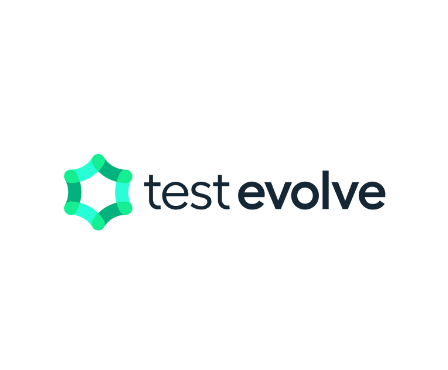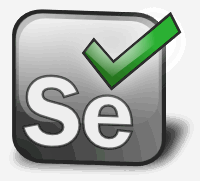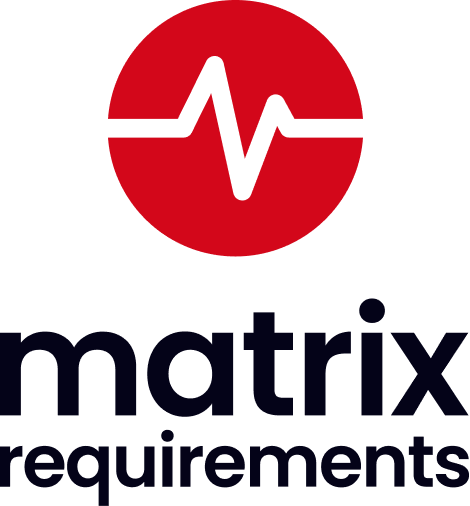Yes, most test management tools are designed to be accessible from different devices and platforms. This means you may access and utilize them on any device, including a desktop, laptop, tablet, or smartphone, regardless of operating system or browser. This provides flexibility and ease for teams that operate remotely or use several devices. It also enables seamless cooperation and real-time updates, increasing test management efficiency and effectiveness.
List of 20 Best Test Management Tools
Tarantula is test management software that prioritizes effective agile testing and detailed reporting. With its advanced capabilities and GNU GPLv3 license, it simplifies the creation of intelligent tags and effortlessly maintains version history for...Read More Testia Tarantula
Gurully is a Edutech platform for individuals seeking to study or migrate abroad. Our one-of-a-kind online mock test platform provides exclusive access to a complimentary test upon sign-up. Elevate your test preparation with our comprehensive and dep...Read More Gurully
Cerebry is a math platform designed for K-12 students. With personalized learning paths and customized support similar to a personal tutor, Cerebry offers interactive practice, review, and evaluation tools. Aligned with international and national cur...Read More Cerebry
Test Evolve is a testing solution to take your process to the next level. Our powerful automation test engine and integrated studio application seamlessly work with your existing testing and audit tools. With a focus on Agile methodology, our all-in-...Read More Test Evolve
Jasmine is a testing software that streamlines testing by eliminating the need for external dependencies. This open-source tool offers a behavior-driven development framework and avoids reliance on DOM, ensuring a clean and intuitive syntax for runni...Read More Jasmine
Galen and user-friendly test management software that seamlessly integrates with Selenium Grid for efficient test execution. With Galen, you can easily run tests on the cloud and ensure comprehensive testing for websites on any mobile device. Its dis...Read More Galen
Appium is a mobile automation tool that works seamlessly with multiple operating systems. It offers the freedom to write tests using your preferred tools, making it a highly customizable solution. Appium enables automated testing of any mobile app an...Read More Appium
FitNesse is a test management solution that empowers teams to conduct efficient and organized testing. With its integrated wiki and acceptance testing framework, and the capability to collaborate with external APIs, FitNesse offers precise automation...Read More FitNesse
Watir, the user-friendly and reliable automation testing software available on RubyGems. Effortlessly interact with browsers using our human-like approach to ensure flawless testing results. With a bug-free performance and easy integration, streamlin...Read More Watir
Apache JMeter is a highly versatile and robust testing tool that is perfect for conducting performance tests on websites. With its 100% Java-based approach, it offers unparalleled flexibility and provides detailed HTML reports and load statistics. It...Read More Apache JMeter
Kiwi TCMS is a highly reliable test management software, designed to ensure strict adherence to testing procedures. Being an open-source tool, it offers unhindered access to external APIs via JSON, facilitating easy import and export of data for prec...Read More Kiwi TCMS
SpiraTest is a test management solution designed to ensure the performance and quality of your software. With its state-of-the-art capabilities such as seamless integration, real-time reporting, and traceability, SpiraTest empowers teams to deliver f...Read More SpiraTest
Klaros-Testmanagement is a tool designed to streamline all aspects of test management, execution, and evaluation. With its extensive customization options and easy integration with other software, Klaros simplifies test case management and data organ...Read More Klaros
Tricentis Tosca is testing tool that utilizes cutting-edge AI technology to streamline the testing process. Its user-friendly codeless interface caters to both technical and non-technical users, making it accessible for all teams. This comprehensive...Read More Tricentis Tosca
Proton is a online assessment solution, specially designed for Schools, Colleges, Corporates, and Coaching classes. For a budget-friendly price of less than $10 per month, Proton provides a user-friendly platform to create and assign a wide range of...Read More Proton
Selenium Automation is a testing tool designed to cater to businesses of all sizes. With its high-performing components, it enables fast and reliable web automation testing. This software works seamlessly on Windows, Linux, and macOS, making it compa...Read More Selenium Automation
ExamOnline is a AI-driven remote proctoring solution. Top organizations in India trust its robustness and choose it for guaranteed cheat-resistant exams. With its adaptability, ExamOnline is the top choice for various types of exams. Count on ExamOnl...Read More ExamOnline
TestRail is a automation tool that simplifies testing for your team. Its user-friendly interface allows you to effortlessly create, organize, and run test cases. Monitor testing progress in real-time and seamlessly integrate with test automation and...Read More TestRail
Matrix Requirements: a software designed to improve the development and regulatory compliance of medical devices. Its advanced traceability and automated processes accelerate time-to-market and ensure superior quality. Streamline your medical device...Read More Matrix Requirements
Copado DevOps and all-encompassing DevOps solution designed for various types of businesses, from startups to enterprises and everything in between. It provides a comprehensive set of integration tools, including change and configuration management,...Read More Copado DevOps
Learn More About Test Management Tools
- What Is Test Management Tools?
- What Are The Recent Trends In Test Management Tools?
- Benefits Of Using Test Management Tools
- Important Factors To Consider While Purchasing Test Management Tools?
- What Are The Key Features To Look For In Test Management Tools?
- Why Do Businesses Need Test Management Tools?
- How Much Time Is Required To Implement Test Management Tools?
- What Is The Level Of Customization Available In Test Management Tools?
- Which Industries Can Benefit The Most From Test Management Tools?
- Conclusion
What Is Test Management Tools?
Test management tools are software programs that help with the planning, implementation, and reporting of software testing procedures. These solutions offer a centralized platform for quality assurance (QA) teams to efficiently manage their testing efforts, ensuring that products and applications satisfy the required quality requirements. One of the key functions of a test management tool is to generate and manage test cases.
This include specifying the processes to be taken, the expected results, and any accompanying test data. These technologies also enable the construction of test plans, which define the scope and objectives of the testing process. Furthermore, test management systems allow teams to run their test cases and monitor their progress in real time. This enables early detection and mitigation of faults and issues, resulting in a more efficient testing process and a higher-quality final product.
Another important characteristic of these technologies is their ability to produce meaningful reports and dashboards. These reports contain useful information about test coverage, defect patterns, and overall test progress, helping teams to make data-driven decisions and continuously improve their testing strategy. In addition to these essential features, many test management platforms integrate with popular bug tracking and project management tools, which streamlines the QA process and promotes team collaboration. When selecting a test management platform, consider features, cost, and scalability. It is also critical to evaluate the tool's compatibility with the QA procedures and processes used by your firm.
What Are The Recent Trends In Test Management Tools?
Software testing is rapidly evolving as technology advances and customer expectations change. In this dynamic context, test management technologies are critical to assuring the delivery of high-quality software products.
To make an informed purchase, a buyer must stay up to date on the latest trends in test management technologies.
1. Shift To Cloud-Based Solutions: One of the most significant recent trends in test management systems is the move to cloud-based solutions. With the advent of remote work and scattered teams, cloud-based applications provide easy access, collaboration, and scalability. As a buyer, consider using a cloud-based test management technology to streamline your testing operations and increase team efficiency.
2. DevOps Integration: Another developing trend is the use of test management technologies in conjunction with DevOps approaches. DevOps bridges the gap between development and operations, and testing is included in this cycle to guarantee continuous quality assurance. Look for a platform that integrates with your current DevOps technologies to promote faster and more effective product delivery.
3. AI And ML Capabilities: AI and machine learning are increasingly being used in test management technologies. These technologies can evaluate large volumes of data, forecast outcomes, and even recommend testing procedures, allowing for faster and more accurate testing. As a buyer, consider investing in a product with AI and ML capabilities to improve your testing efforts.
4. Automation And Scriptless Testing: Automated and scriptless testing are gaining popularity in the software testing industry. These test management technologies help to accelerate testing procedures, eliminate human errors, and improve overall test coverage. They also allow non-technical team members to contribute to testing, resulting in a more thorough approach to quality assurance.
5. User-Friendly Interfaces: In today's fast-paced software development, time is of the essence, and test management systems with an easy-to-use interface have gained enormous appeal. These solutions include drag-and-drop functionality, customized dashboards, and straightforward processes to help you handle large-scale testing projects more efficiently. As a buyer, seek for a product that has a simple UI to save time and improve your testing experience.
Benefits Of Using Test Management Tools
Test management solutions are critical components of any software development process. They offer a consolidated platform for managing and tracking all aspects of the testing process, including test preparation, execution, and reporting.
Let's explore, we'll go over the benefits of using test management tools so you can make an informed decision when choosing the best product for your team.
1. Increased Efficiency And Productivity: Test management technologies automate various manual procedures, saving time and effort during testing. This improves your team's productivity and efficiency, allowing them to focus on more important areas of testing.
2. Improved Collaboration And Communication: A test management solution gives all team members access to the same platform, allowing them to collaborate in real time. This streamlines the communication process and ensures that everyone is on the same page, lowering the likelihood of miscommunication and errors.
3. Centralized Test Management: Test management systems create a single repository for all of your testing efforts, making it easier to track and manage test cases, requirements, and problems. This removes the need for numerous spreadsheets, emails, and documents, lowering the likelihood of data loss and confusion.4. Improved Test Coverage: Test management technologies include traceability, which allows you to relate requirements to test cases and problems. This ensures that your tests address all system requirements, resulting in thorough test coverage.
5. Improved Test Quality: With features like as test case management, test execution tracking, and defect management, test management solutions can help you increase the quality of your testing processes. They offer an organized approach to testing, ensuring that all processes are completed and no critical areas are overlooked.
6. Simple Test Reporting: Test management technologies allow you to create customisable test reports that provide a clear picture of the testing process, results, and any current faults. These reports can be distributed to stakeholders, allowing them to make informed decisions about the project.
7. Cost Savings: By automating manual activities, eliminating errors, and increasing efficiency and productivity, test management technologies can help your team save time and money. They also reduce the time and effort needed for regression testing, resulting in speedier product releases.
Important Factors To Consider While Purchasing Test Management Tools?
When it comes to acquiring test management solutions, there are numerous key elements to consider to ensure that you are making the right option for your team and organization. These technologies are critical to the software development process, since they assist teams in successfully organizing, tracking, and managing testing operations.
Here are the major elements to consider while picking a test management tool:
1. Features And Functionality: The test management tool's features and functionality are the most important factors to examine. When considering various technologies, keep your team's individual needs in mind and prioritize them. Some important elements to look for are test case management, bug tracking, requirement management, and report generation capabilities.
2. Scalability: It is critical to select a test management platform that can scale with your team's needs and the expansion of your firm. As your team grows and your projects get more sophisticated, the tool should be able to handle the increased effort while adapting to new requirements easily.
3. Integration With Other Tools: In today's fast-paced software development industry, teams employ a wide range of tools to handle various elements of their job. It is critical to select a test management tool that works seamlessly with your other tools, such as project management, problem tracking, and source control. This integration facilitates teamwork and streamlines the testing process.
4. Usability: A successful test management product must have an easy-to-use and intuitive UI. Team members at all levels should be able to navigate and complete tasks without requiring substantial training or technical understanding. This will save your team important time and resources while increasing production.
5. Customization And Flexibility: Each team and project has distinct requirements, and a test management platform should be adaptable enough to meet them. Look for a tool that supports customization and flexible workflows, allowing you to adjust it to your team's specific requirements.
6. Assistance And Customer Service: When purchasing a test management solution, it is critical to ensure that the vendor provides consistent and timely assistance. Look for a tool that offers outstanding customer service, including technical support, regular updates, and problem repairs.
7. Expense-Effectiveness: While it may be tempting to choose the cheapest alternative, it is critical to evaluate the long-term expense of purchasing a test management product. Evaluate the features and capabilities provided by various tools to establish their worth to your firm and make an informed choice.
When choosing a test management platform for your team, consider these aspects to make an informed and appropriate decision. Remember to include your team members in the decision-making process and thoroughly analyze all choices before reaching a final decision.
What Are The Key Features To Look For In Test Management Tools?
Testing is a critical element in any software development process, and a test management solution can help you streamline and organize it. When looking for a test management platform, emphasize features that will help to improve testing quality and efficiency.
The following are the essential elements to consider when assessing test management software.
1. Test Case Management: A test management tool's core functionality is the ability to generate, manage, and run test cases. Look for a solution that allows you to easily create and categorize test cases, as well as link them to requirements for greater traceability.
2. Test Execution And Reporting: A effective test management platform should enable a variety of testing methodologies, including manual and automated testing, and provide real-time feedback on test execution progress. It should also provide thorough reporting tools to help track progress and highlight areas for improvement.
3. Integration With Other Tools: Because testing is only one aspect of the software development cycle, it is critical that the test management tool interface with other products, such as project management and issue tracking systems, to guarantee a smooth workflow.
4. Teamwork And Communication: Effective communication and teamwork among team members are critical to successful testing. Look for tools that allow you to assign tasks, track changes, and offer comments within the platform to promote seamless teamwork.
5. Requirements And Traceability: A test management platform should allow you to link test cases to requirements, ensuring that all required functionalities are tested. It should also give traceability reports that demonstrate the coverage of requirements and any relevant concerns.
6. Customization And Scalability: Because each team's testing requirements differ, it is critical to select a tool that can be tailored and scaled to meet your individual demands. This will ensure that the tool is still useful when your testing processes evolve.
7. A User-Friendly: Interface is essential for efficient testing. Choose a product with a simple, user-friendly design that allows you to easily explore and complete tasks.
8. Assistance And Training: Choose a product that provides extensive assistance and training to guarantee that your team can fully utilize its features and capabilities.
Why Do Businesses Need Test Management Tools?
Businesses require test management solutions to assure the quality and viability of their software products. These technologies provide a comprehensive solution for planning, controlling, and tracking the software testing process, resulting in increased efficiency, effectiveness, and reliability. They offer a centralized platform for all testing processes, allowing firms to save time, cut costs, and boost production.
One of the primary reasons firms use test management technologies is to streamline their testing procedures. Companies can use these tools to design and implement test plans, automate test cases, and provide detailed reports. This reduces the need for manual and repetitive processes, freeing up resources for other critical jobs and shortening the time-to-market for new products. Furthermore, test management technologies enable increased cooperation and communication capabilities.
They enable several team members to collaborate on testing projects, sharing real-time updates and feedback. This enables greater team cooperation and increases overall testing efficiency. Another important feature of test management software is the ability to track and monitor faults. These solutions allow firms to collect and evaluate defect data, which provides significant insights for improving the quality and stability of software products.
They also provide defect tracking features, which allow teams to prioritize and assign tasks while keeping track of their progress, resulting in faster and more effective issue resolution. Furthermore, test management solutions assist firms in managing test environments and setups. They let businesses to develop and maintain test environments of varying configurations, assuring compatibility and functionality across several platforms and devices. This is vital in today's diversified and fast changing technological landscape.
How Much Time Is Required To Implement Test Management Tools?
The time required to establish test management technologies varies according to your individual requirements and conditions. On average, it can take between a few weeks and a few months to properly adopt and integrate a test management solution into your testing procedures. The implementation process normally consists of numerous parts, beginning with planning and specifying your testing requirements.
This could entail determining the features and functionalities you require in a test management solution, as well as analyzing your team's workflows and testing environment. The next step is to investigate and select the best test management technology for your needs and budget. This stage may take some time as you assess several possibilities, compare their features and pricing, and read other users' feedback.
Once you've decided on a test management tool, the actual installation procedure begins. This often include installing the tool, configuring it to meet your individual testing methods, and migrating any existing test cases and data to the new system. Depending on the complexity of your testing methods and the amount of data to be uploaded, this stage could take several weeks or more.
After you have set up and setup the tool, the following step is to train your team on how to utilize it efficiently. This can include writing user manuals, holding training sessions, and providing continuous assistance to ensure that everyone feels comfortable using the new product. Some test management technologies may require adaptation to meet your specific business requirements. This can add time to the implementation process, especially if your needs are complicated.
What Is The Level Of Customization Available In Test Management Tools?
When picking a test management solution, one of the most important elements to consider is the level of customisation offered. Every organization has different testing needs, and a one-size-fits-all approach may not be the best solution. Here's where customisation comes into play. Most test management programs provide some level of customization, but the extent varies greatly amongst tools.
Some programs may simply allow simple customization, like as modifying the layout or adding custom fields, whilst others provide a large range of customization possibilities that can significantly improve the testing process. The level of customisation available in a test management tool is determined by a variety of factors, including the product's features, functionality, and pricing. The more extensive and comprehensive a tool is, the greater the level of customization it provides.
A decent test management platform should, at the very least, allow you to customize your test cases, test plans, and test runs. This means you can develop and specify your own testing methods and workflows that are specific to your organization's requirements. Customizing reports and dashboards is also crucial since it allows you to track and analyze your testing progress in a way that is understandable to your team.
Aside from these basic customization choices, some test management software provide additional customization features, such as the ability to build new test templates, fields, and even automate specific testing processes. These characteristics can significantly increase efficiency and productivity, making them indispensable for larger or more complicated testing projects.
However, it is crucial to realize that additional customisation possibilities result in a steeper learning curve and potentially higher prices. Before investing in a test management platform, you should first examine your organization's needs and establish the level of customization required.
Which Industries Can Benefit The Most From Test Management Tools?
Test management technologies are critical for firms looking to streamline and optimize their software testing processes. They provide a wide range of features and benefits across industries, making them an excellent investment for enterprises of all sizes.
Let's look at which sectors can gain the most from employing test management technologies.
1. Information Technology (IT) Industry: Due to the ever-changing and fast-paced nature of the IT sector, effective and dependable testing processes are required. IT firms can use test management systems to run tests faster and more precisely, track and report errors, and manage testing cycles. This leads to better software quality, faster delivery times, and, ultimately, more client happiness.
2. Healthcare Industry: In the healthcare industry, software testing is crucial since errors or failures can have serious implications. Healthcare firms can use test management solutions to assure the correctness and operation of their software, resulting in better patient care, lower costs, and increased compliance with requirements such as HIPAA.
3. Banking And Finance Industry: With the growing reliance on digital banking and financial services, robust and secure software is essential. Test management systems allow financial organizations to conduct rigorous and comprehensive testing to assure the stability and security of their applications. This, in turn, helps companies keep their clients' trust and avoid financial losses caused by system breakdowns or security breaches.
4. Retail Industry: In the competitive retail industry, providing a consistent and user-friendly experience is critical to success. Test management systems enable merchants to test their e-commerce websites and mobile apps to ensure that they are functional, user-friendly, and capable of handling enormous levels of traffic. This leads to delighted customers and higher revenue.
5. Telecommunications Industry: The telecommunications business is constantly evolving, with new technology and equipment released on a regular basis. Telecom firms can employ test management technologies to test their software applications across multiple devices, networks, and operating systems, resulting in a smooth and seamless user experience for their clients.
6. Education Industry: Educational institutions rely heavily on software for both online learning and administrative functions. Using test management solutions, these institutions can guarantee that their software is user-friendly, functional, and safe. This leads to increased productivity, higher student engagement, and improved communication among students, instructors, and staff.
Conclusion
To summarize, investing in a dependable and effective test management platform is critical for organizations of all sizes trying to optimize their testing operations and improve the overall quality of their software. After careful consideration of many variables such as functionality, cost, support, and user feedback, we have chosen the top test management products on the market that meet a variety of demands and budgets.
Before making a purchase, customers should properly examine their requirements and compare them to the offerings of each instrument. We recommend testing or demoing the shortlisted products to gain a better idea of their functionality and usability. Finally, the correct test management technology may significantly improve the efficiency and efficacy of your testing activities, resulting in higher-quality software and greater customer satisfaction. We hope this buyer's guide has helped you choose the best test management tool for your business.
Test Management Tools FAQ's
Can Test Management Tools Be Accessed Across Multiple Devices And Platforms?
Is Test Management Tools Future-Proof And Adaptable To Emerging Technologies Like AI, Blockchain Or IoT?
Test management technologies are always improving to keep up with the ever changing technological scene. With the rise of emerging technologies such as artificial intelligence, blockchain, and the Internet of Things, test management tools must be future-proof and adaptive.
Many modern test management systems include built-in functionality and integrations for various technologies, making them appropriate for any software development project. Furthermore, these tools are frequently updated to reflect new developments, ensuring their relevance and adaptability in the face of developing technologies.
Is There A Free Trial Offered To Assess Test Management Tools Before Committing?
Yes, many test management platforms provide a free trial or sample version that allows users to evaluate the technology before committing to it. This allows users to try the tool's features and functionalities to determine whether they match their individual needs and requirements. It also allows customers to make an informed decision before investing in the instrument. It is advised that you use the free trial to properly grasp the test management tool's capabilities and benefits.
Does Test Management Tools Offer Data Security Features And Meet Regulatory Compliance Standards?
Yes, most Test Management Tools have data security measures to protect sensitive information and meet with legal requirements. These technologies frequently include features like data encryption, access control, and data backups to help avoid data breaches. Furthermore, they are intended to meet a variety of legal obligations, including GDPR and HIPAA. This ensures that your data is protected and that your testing procedure is compliant.
Can Test Management Tools Integrate Seamlessly With Existing Tools And Platforms?
Yes, most test management technologies can work easily with other tools and platforms. They are designed to be compatible with a wide range of tools and platforms, including project management software, bug tracking systems, and automation tools. This ensures that information flows smoothly and teams collaborate effectively. Furthermore, many test management platforms provide APIs and plugins to make integration easier and more customized.






















